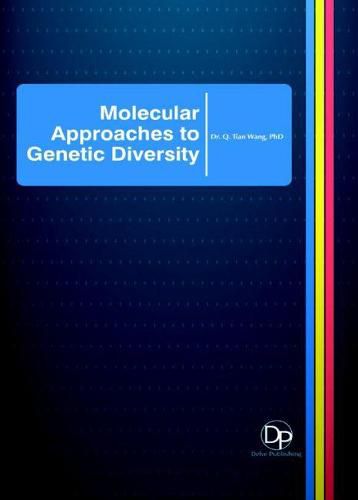Molecular Approaches to Genetic Diversity

Molecular Approaches to Genetic Diversity
Genetic diversity, or the variety of genes within a species, plays important roles in phenotypic diversity and the species’ ability to adapt to environments. Studies of genetic diversity mainly focus on two areas. The first area is concerned with understanding and characterizing genetic diversity in humans, animals, plants, and microbes. The second focus area is exploiting genetic diversity for the purposes of medicine, agriculture, and conservation. To help readers appreciate the wide range of research questions on genetic diversity and how molecular approaches are utilized to address these questions, this book is organized into three chapters to showcase selected studies of genetic diversity in humans, animals and plants, and microbes, respectively. The post-genomic era provides powerful tools for the studies of genetic diversity. For example, as of 2016, the single nucleotide polymorphism (SNP) database maintained by the National Center for Biotechnology Information (NCBI) lists ~150 million SNPs. The huge amount of available genomic information greatly facilitates genome-wide association studies (GWAS). GWAS has been applied to the studies of various human diseases including cancer, heart diseases and diabetes. In agriculture, GWAS is used to identify genomic regions associated with desirable breeding traits in cattle or agronomic traits in plants. Thanks to the advancement in sequencing technology, it has become feasible and increasingly routine to sequence multi-gene panels, exomes, and whole genomes. These approaches are being widely used for the investigation of genetic variants-of-interest as well as genetic diagnosis. Gene panels offer a quick way to interrogate a panel of genes that are known to be associated with a specific disease or condition. Compared to sequencing of gene panels, whole exome sequencing (WES) and whole genome sequencing (WGS) cost more for each sample but generate much larger amount of data such that the cost per variant is significantly less. By interrogating millions of variants per genome, WES/WGS can be very powerful in identify new variants that are associated with diseases, disease risks, or prognosis. Another important technological development is gene editing technology. Genetic diversity in plants and animals provide the raw material for crop and livestock breeders, respectively. Gene editing technology greatly enhances the efficiency of breeding by allowing breeders to create transgenic elite lines and manipulate multiple loci simultaneously.
This item is not currently in-stock. It can be ordered online and is expected to ship in approx 4 weeks
Our stock data is updated periodically, and availability may change throughout the day for in-demand items. Please call the relevant shop for the most current stock information. Prices are subject to change without notice.
Sign in or become a Readings Member to add this title to a wishlist.


